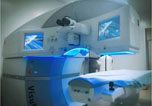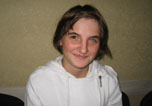- Over 55,000 LASIK and cataract procedures (including on over 4,000 doctors)
- The FIRST center in TN to offer Laser Cataract Surgery
- Introduced bladeless all-laser LASIK to the state
- Implanted the state's first FOREVER YOUNG™ Lens
- The first surgeons in the US to perform a new Intacs surgery to treat keratoconus
- Helped patients from 40 states and 55 countries
- International referral center for cataract surgery and LASIK complications
- Read Dr. Wang's book: LASIK Vision Correction
Why did you decide to have LASIK? Why did you choose Dr. Wang? How has your life changed since your LASIK procedure?
What is your advice for people considering LASIK?
Click to read more
Chapter TwelveQuestions and AnswersWhat Is the Difference Between PRK and LASIK? Both procedures use the excimer laser to reshape the cornea and correct nearsightedness, farsightedness, and astigmatism. The difference is that with PRK the laser is used on the surface of the eye, while in LASIK the laser work is performed under a thin, protective, corneal flap. The long-term results of both procedures are similar. Additionally, visual recovery with LASIK is usually faster, with less discomfort and less possibility of scarring. With PRK, postoperative drops are needed for up to three months, whereas with LASIK medicated drops are only needed for five to seven days. Since its advent, LASIK has become the procedure of choice over PRK. Does LASIK Hurt? Before the LASIK procedure begins, your eye is made numb by drops. While you may feel a pressure sensation as the corneal flap is being made, actual pain is rare. Any discomfort you may feel subsequent to the LASIK procedure will last only a few hours. Sleep and lubrication, as well as Tylenol or ibuprofen, are usually enough to counteract any discomfort. Can You Guarantee 20/20 Vision? As with any surgical procedure, there are no guarantees. Although the results are extremely good (ninety-five percent of patients in national studies no longer need glasses for driving), the results of the procedure depend on your initial refraction, your own healing characteristics, and other factors. It is good to look at LASIK vision correction surgery as a way of achieving an extreme decrease in your dependence on glasses or contact lenses. If 20/20 vision is not obtained after the primary LASIK procedure, enhancements may be effective to further improve vision. 20/20 can only be achieved in patients who have the potential to obtain 20/20 vision. For example, LASIK performed on a patient with a lazy eye that can only see 20/40 will only achieve 20/40 best corrected vision. Has Anyone Ever Gone Completely Blind from Their LASIK Procedure? No. In over 1.7 million cases done worldwide, no one has ever gone completely blind from a LASIK or PRK procedure, although you can lose a significant amount of vision if the procedure is not performed correctly. Can Both Eyes Be Done at Once? LASIK is often done on both eyes at the same sitting. The results are so predictable and the procedure safe enough that most people undergoing LASIK surgery prefer to have both eyes done on the same day. The advantage of bilateral surgery is the convenience of having both eyes done at once. It also restores your balanced vision as quickly as possible, especially if you are unable to wear a contact lens in the unoperated eye. If you undergo PRK, however, you may want to have your eyes done on consecutive weeks as it may take a few days for functional vision to return. By doing one eye at a time, you can rely on the other while the postoperative eye is healing. Additionally, surgeons may elect to do one eye at a time in patients with extreme myopia, as these patients can be less predictable in terms of their response to the laser. One theoretical advantage of unilateral surgery is that if one eye should become infected, the second eye would have an increased risk for this complication as well. Infection turns out to be a very rare occurrence, so this advantage becomes more of a theoretical benefit. Another theoretical advantage quoted by proponents of unilateral surgery is that the results of the first eye can be used to fine tune the results of the second. Again, in practice this turns out not to be clinically significant in most cases. At the time of your consultation, you will be advised of the advantages and disadvantages of both options. The final decision should be based on your surgeon's recommendations and your desires. What Are the Results of LASIK Surgery? Results may vary from surgeon to surgeon and from center to center. Results also vary depending on your initial refractive error. With higher amounts of myopia, hyperopia, and astigmatism, results are less predictable and retreatments are more common. It is important to ask your surgeon about his or her experience and results. How Long Will the Correction Last? Once your eye has stabilized (which is about three months with LASIK and six months with PRK), your correction is permanent. Any additional need for glasses after that will be the result of normal aging processes that befall everyone and not due to any instability in the refractive procedure. What about Enhancement Surgery? In the event that you are undercorrected or over-corrected, it is possible to perform an additional treatment. But first your eye must stabilize. Typically, retreatment with LASIK usually takes place two to three months after the original procedure. With PRK this can occur after about six months to one year. In PRK, the front surface of the cornea is treated again, and the recovery time is a week to a month. With LASIK, the corneal flap usually does not need to be recreated. Using specialized instruments, the surgeon can just gently lift the preexisting flap and perform additional laser work. Recovery time is similar to the original procedure. Such enhancement surgery is usually not an additional charge but is considered part of the original fee if performed within a specified time after the original surgery. I Have "Dry Eyes." Will This Affect My LASIK Surgery? Many patients seeking refractive surgery do so because they have dry eyes and are unable to wear contact lenses anymore. It is important that your dry eyes be treated. This usually involves the use of tear supplements and punctum plugs (tiny silicone plugs placed in the tear drainage openings of your eyelid) that delay the drainage of your own tears so your eyes will stay moist. After the procedure, your operated eye may feel temporarily drier because the corneal nerves are severed during LASIK surgery, causing the eye to make fewer tears. This condition is temporary and typically lasts three to six months. Dry eye symptoms can be particularly noticeable if you use the computer frequently, read for long periods of time, or drive extended distances. These types of activities exacerbate dry eyes because they cause you to stare and not blink as often. It is important to use ample lubrication, especially during the first few months after surgery. If I Need to, Can I Wear Contact Lenses after Surgery? If you have a residual refractive error and you choose not to have an enhancement procedure, you may elect to wear contact lenses. With PRK you may need to wait up to three months; with LASIK you may wear contact lenses in four weeks. If you were a good contact lens wearer before LASIK, it is unlikely you will have problems afterward. What Is Monovision? In patients in their mid-forties who are already experiencing difficulty with reading in their distance correction, it is possible to treat one eye for near vision and the other for distance vision, thus decreasing the necessity for both near and distance glasses. If you are considering monovision, it is advisable to try it out with contact lenses before proceeding directly to LASIK surgery. If you have already been successful with monovision in contact lenses, you will most likely enjoy this type of correction following PRK or LASIK. If you are over forty and hope to avoid glasses altogether in your life, this is presently the only way to accomplish this. Can There Be a Problem with My Eyes Twenty Years from Now Because I Had LASIK? This is very unlikely. LASIK is a form of lamellar refractive surgery, and lamellar refractive surgery (myopic keratomileusis) has been performed since 1949. Patients who have undergone these related but less accurate and more invasive procedures fifty years ago have not had any unusual problems. Can I Have Cataract Surgery If I Need It in the Future? Yes. The surgical technique used will not change. However, your lens implant will be calculated using a different formula. Will Having LASIK Prevent Me from Getting Other Eye Diseases? No. LASIK does not prevent cataracts, glaucoma, macular degeneration, or any other eye disease. Ophthalmologists term LASIK as disease neutral: It doesn't cause disease, it doesn't prevent disease, and it doesn't prevent diseases encountered in the future from being treated. Is LASIK Approved by the Food and Drug Administration? In 1995 the FDA approved the use of the excimer laser for the treatment of myopia using PRK. In recent years LASIK has gained popularity in many practices and has become the procedure of choice worldwide. In the fall of 1999, LASIK was approved by the Food and Drug Administration under the stipulation that it only be performed on the VISX S2 SmoothScan or the Summit Apex Plus excimer laser. At the time this publication went to press, the VISX S2 SmoothScan and the Summit Apex Plus excimer laser systems were the only lasers fully FDA approved for performing LASIK surgery. What Does Laser Vision Correction Surgery Cost? Please call us (615)321-8881 for pricing information for refractive surgical correction (LASIK, PRK, and CK). Affordable payment plans are available to qualified candidates. Please ask available payment options. Will Insurance Companies Pay for LASIK Surgery? Some insurance companies will pay for the procedure, but that is the exception rather than the rule. Check with your specific insurance carrier to see whether it covers LASIK, and/or whether there are discounts available through your plan. Who Is a Candidate for LASIK Vision Correction? You must be at least eighteen years old and have a stable prescription. Good candidates have myopia up to -14.00 or hyperopia up to +6.00. Your level of astigmatism may be as high as 6.00 diopters. You cannot be pregnant or nursing, have any unstable medical condition, or any uncontrolled eye diseases. It is also important that you have reasonable expectations. Who Is Not a Good Candidate for LASIK Surgery? Anyone whose prescription is actively changing more than one diopter per year. Anyone who feels that he or she must absolutely gain 20/20 vision without glasses or contact lenses. (No surgeon can guarantee 20/20 vision without correction. Think of it, instead, as achieving a vastly decreased dependency on glasses and contact lenses.) Anyone unwilling to accept the possible risks and complications of LASIK surgery. Anyone with an uncontrolled or untreated eye disease. Certain corneal dystrophies or a history of herpetic keratitis (a herpes infection in the eye) may be relative contraindications, as are certain arthritic syndromes. When Can I Drive? With LASIK you can usually drive within one to three days. With PRK you should probably not drive for a week. This depends on whether you have one eye done at a time or have simultaneous surgery on both eyes. The Department of Motor Vehicles typically grants unrestricted driving privileges to individuals who possess 20/40 or better vision. Over ninety percent of all patients who undergo LASIK surgery have this level of vision or better by the first day after their procedure. When Can I Return to Work? With PRK you should plan on taking off at least two days if you have both eyes done simultaneously, as you will experience some discomfort and your vision will be fairly blurry. With LASIK the majority of patients can return to work the next day, although it is advisable to take twenty-four hours off following surgery on both eyes. If you work in a dusty environment, you should wait forty-eight hours prior to returning to work. While most patients can function normally at work the day after their LASIK procedure, we recommend that you not schedule any unbreakable appointments or meetings on that day. If your recovery is delayed slightly, you will still be able to accommodate the delay without any undue stress. |
If you're interested in bladelessLASIK, choose experience and technology. Choose Wang Vision 3D Cataract and LASIK Center of Nashville, Tennessee. Call (615)321-8881 or email us today.
Our new texbooks
A 501c(3) charity that has helped patients from over 40 states in the US and 55 countries, with all sight restoration surgeries performed free-of-charge.




















